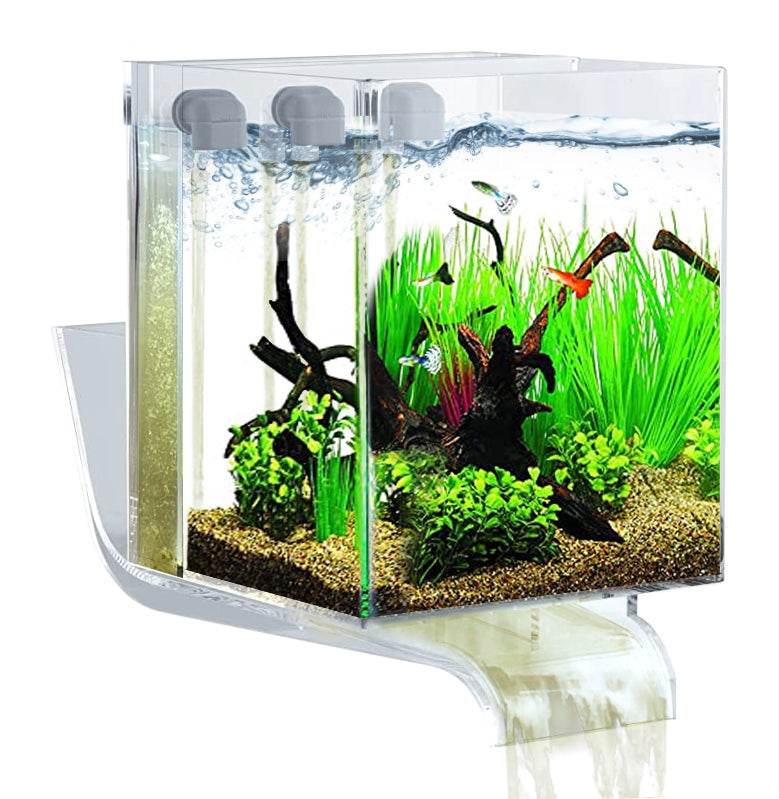88YTY News Hub
Stay updated with the latest trends and news.
Keep Your Fish Smiling: Aquarium Care Secrets You Wish You Knew
Discover the top aquarium care secrets to keep your fish happy and healthy! Dive in for expert tips you wish you knew sooner!
Essential Water Parameters for a Healthy Aquarium: What Every Fish Owner Should Know
Maintaining a healthy aquarium environment is crucial for the well-being of your aquatic pets. Understanding the essential water parameters can greatly enhance the quality of life for fish, plants, and other inhabitants. Key factors to monitor include pH levels, ammonia, nitrite, nitrate, and temperature. For instance, the pH level should typically range from 6.5 to 7.5 depending on the species of fish you own. Additionally, keeping ammonia and nitrite levels close to 0 ppm is vital since both are toxic to fish, and regular testing can help identify any imbalances early.
Another important aspect to consider is the hardness of the water, which affects fish health and plant growth. Aquarium hardness refers to the concentration of dissolved minerals, primarily calcium and magnesium, which are essential for various biological processes. To achieve the ideal hardness for your aquarium, regular testing with test kits is recommended. Furthermore, maintaining a stable temperature between 74°F to 78°F is crucial for most freshwater species, ensuring they thrive in a comfortable environment.

The Ultimate Guide to Fish Nutrition: Keeping Your Aquarium Friends Happy and Healthy
Understanding fish nutrition is crucial for the health and happiness of your aquarium inhabitants. Just like any other pet, fish require a well-balanced diet to thrive. A diet rich in essential nutrients helps maintain their immune system, enhances growth, and promotes vibrant colors. It's essential to provide a variety of foods, including high-quality commercial flakes, pellets, and live or frozen foods such as brine shrimp and bloodworms. Incorporating vegetables like blanched peas or spinach can also benefit herbivorous fish, thereby ensuring they receive the necessary vitamins and minerals.
When forming a feeding strategy, consider factors like the species you own and their dietary preferences. Some common feeding approaches include scheduled feeding, where you feed fish at specific times, and spontaneous feeding, where food is available throughout the day. Make sure to avoid overfeeding, as excess food can lead to poor water quality and health problems. It's recommended to feed small portions that can be consumed in a few minutes and to adjust the amounts based on your fish's activity level. Regularly consulting resources such as the Feeding Techniques for Fish can help you stay informed and keep your fish happy and healthy.
Common Aquarium Mistakes: What Are You Doing Wrong and How to Fix It?
Common aquarium mistakes can lead to unhealthy fish and a less enjoyable experience for aquarium enthusiasts. One prevalent issue is overfeeding, which can pollute the water and cause health problems for your fish. Instead of randomly feeding your fish, consider implementing a feeding schedule to ensure proper portions and maintain water quality. Additionally, many hobbyists neglect the importance of cycling their aquarium before adding fish. This process establishes beneficial bacteria that break down harmful toxins. If you've skipped this step, take the time to cycle your aquarium properly for a healthy environment.
Another common mistake is failing to maintain water parameters. Fish require specific conditions to thrive, including temperature, pH levels, and ammonia/nitrite/nitrate levels. Regularly testing your water with an aquarium water test kit can help you stay on top of these factors. Lastly, many aquarists underestimate the importance of tank size. Choosing a tank that’s too small can lead to overcrowding and stress for your fish. Research the needs of your chosen species to select an appropriate tank size, and consult resources like FishLore for guidance.